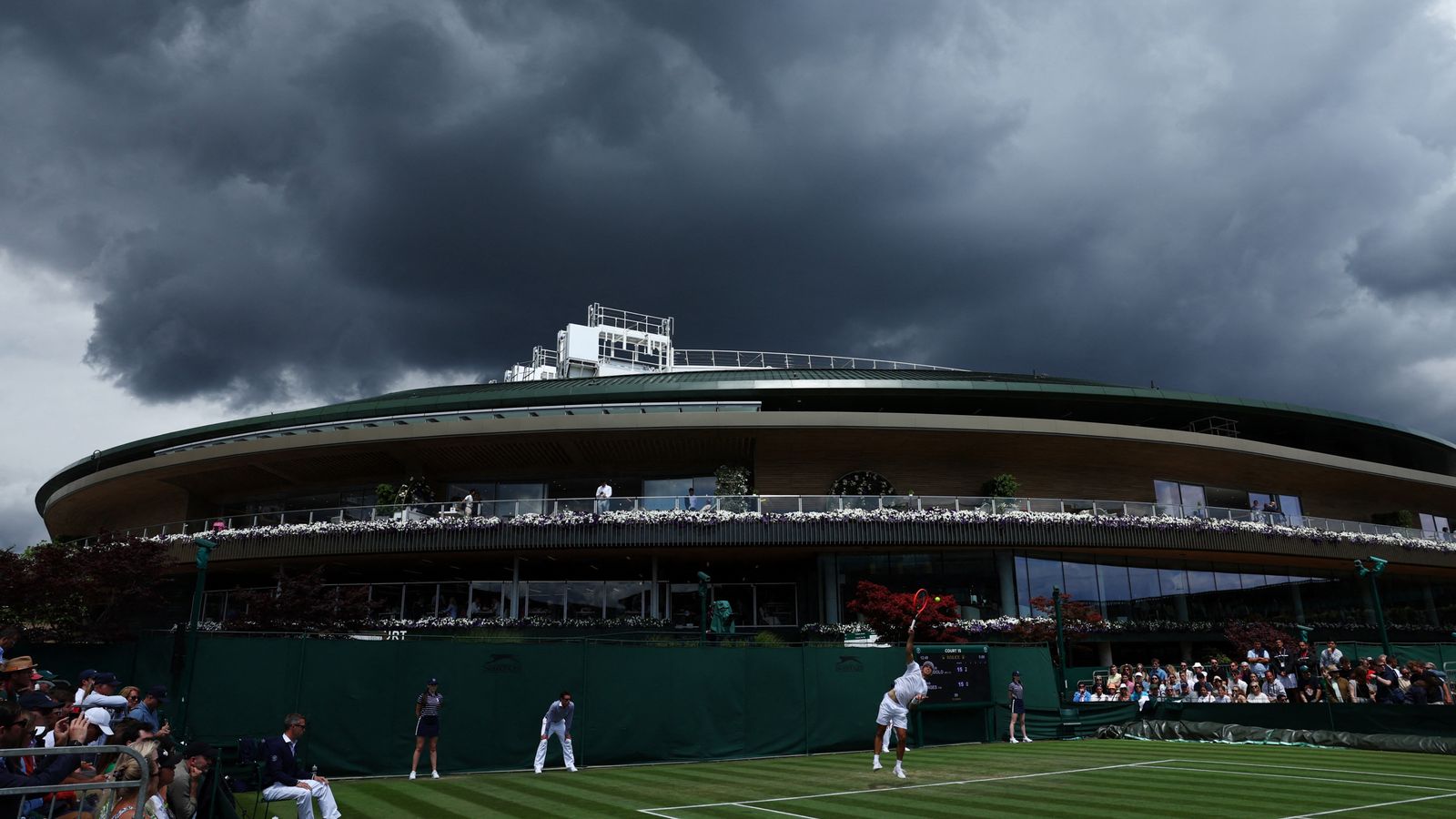FTC Appeals Activision Blizzard Acquisition: Will The Deal Still Happen?

Table of Contents
The FTC's Case Against the Merger
The FTC's core argument centers on the potential for anti-competitive practices stemming from the Microsoft-Activision Blizzard merger. The commission argues that the acquisition would grant Microsoft undue market dominance, harming competition and potentially harming consumers. Keywords: antitrust laws, competitive harm, market dominance, Call of Duty
Specific concerns raised by the FTC include:
- Reduced competition in the gaming console market (Xbox vs. Playstation): The FTC argues that Microsoft's acquisition of Activision Blizzard, a major game publisher, would significantly bolster Xbox's market share, potentially disadvantaging PlayStation and other competitors. This imbalance could lead to higher prices and reduced innovation.
- Potential for Microsoft to make Call of Duty exclusive to Xbox, harming competitors: Call of Duty is one of the world's most popular video game franchises. The FTC fears that Microsoft could make it an Xbox exclusive, significantly harming competitors like PlayStation, which rely on the game's popularity to attract consumers. This would constitute a clear anti-competitive practice.
- Concerns about the impact on game subscription services and pricing: The merger could also influence the competitive landscape of game subscription services, such as Xbox Game Pass and PlayStation Plus. The FTC worries that Microsoft could leverage its expanded catalog to stifle competition and raise prices.
- Evidence presented by the FTC: The FTC’s case relies on various internal documents and market analysis demonstrating the significant market share Activision Blizzard commands and the potential for Microsoft to leverage that share to its advantage post-merger.
The FTC's legal strategy focuses on demonstrating that the merger violates antitrust laws by creating a monopoly or substantially lessening competition. They are likely to employ economic modeling and expert witness testimony to support their claims. Keywords: monopoly power, predatory pricing, merger remedies
Microsoft's Defense and Proposed Solutions
Microsoft counters the FTC's claims by arguing that the acquisition will foster competition and benefit consumers. They highlight the competitive landscape of the gaming industry, emphasizing the existence of numerous other significant players, including Nintendo and other game publishers. Keywords: competitive landscape, consumer benefits, cloud gaming, innovation
Microsoft has offered several remedies and concessions to address the FTC's concerns:
- Long-term Call of Duty licensing agreements with competitors: Microsoft has pledged to license Call of Duty to PlayStation and other platforms for a significant period, ensuring continued access for gamers regardless of their preferred console.
- Commitments to maintain fair pricing and access for all gamers: Microsoft aims to demonstrate that the acquisition will not lead to higher prices or reduced access to games for consumers.
- Investment in cloud gaming infrastructure to ensure fair competition: Microsoft has emphasized its ongoing investment in cloud gaming technology, suggesting that this will actually increase competition in the market.
- Other concessions: Microsoft may offer further concessions, depending on the ongoing negotiations and the demands of the regulatory bodies.
The strength of Microsoft's defense hinges on its ability to convincingly demonstrate that the merger will not substantially lessen competition and that its proposed remedies adequately address the FTC's concerns. Keywords: regulatory compliance, market analysis, public interest
The Role of International Regulators
The Microsoft-Activision Blizzard acquisition is not solely subject to US regulatory scrutiny. International regulators play a crucial role, and their decisions can significantly impact the deal's fate. Keywords: EU competition law, CMA (UK), global antitrust
The positions of key international regulators include:
- UK's Competition and Markets Authority (CMA): The CMA initially blocked the deal but has since indicated a willingness to revisit their decision given Microsoft's concessions.
- European Union: The EU's review process is ongoing. Their decision will carry significant weight.
- Other countries: Regulatory bodies in other jurisdictions are also reviewing the deal. A fragmented approach with some jurisdictions approving and others blocking the merger is entirely possible.
A fragmented regulatory approach, with differing decisions across countries, creates significant complexity and uncertainty. The implications for the deal's ultimate success are considerable. Keywords: international cooperation, regulatory divergence, cross-border mergers
Potential Outcomes and Timeline
Several potential scenarios exist:
- Successful appeal by the FTC: The FTC could successfully appeal the initial court ruling, potentially leading to the deal's blockage.
- A compromise: Microsoft and the FTC might reach a settlement involving further concessions from Microsoft.
- The deal falling apart completely: If the regulatory hurdles prove insurmountable, Microsoft might choose to abandon the acquisition.
A realistic timeline for developments is difficult to predict, given the complexities of the legal proceedings and the ongoing negotiations. Court dates, appeals processes, and settlement talks all influence the timeframe, making a precise prediction speculative. Keywords: court ruling, settlement negotiations, deal termination
Conclusion
The FTC's appeal of the Microsoft-Activision Blizzard acquisition highlights a significant clash between the desire for corporate consolidation and the need to maintain a competitive gaming market. Microsoft’s defense relies on demonstrating that the deal will benefit consumers and not stifle competition, a claim counterbalanced by the FTC’s concerns regarding market dominance and potential anti-competitive actions. The involvement of international regulators adds further complexity, with differing regulatory standards potentially leading to a fragmented outcome.
Assessing the likelihood of the Activision Blizzard acquisition succeeding is challenging. While Microsoft has made concessions, the FTC's determination and the stances of other regulatory bodies remain significant obstacles. The ultimate decision will likely hinge on the courts’ assessment of the evidence and the weight given to the concerns raised by antitrust regulators worldwide.
Stay tuned for further updates on this high-stakes legal battle. The future of the gaming industry and the Activision Blizzard acquisition hangs in the balance. Keep checking back for the latest developments in this evolving saga. Keywords: Activision Blizzard merger, Microsoft acquisition update, FTC vs. Microsoft

Featured Posts
-
 Senamhi Frio Extremo Afecta A Lima Recomendaciones Urgentes
May 30, 2025
Senamhi Frio Extremo Afecta A Lima Recomendaciones Urgentes
May 30, 2025 -
 French Open Djokovic Secures Opening Round Win
May 30, 2025
French Open Djokovic Secures Opening Round Win
May 30, 2025 -
 Neu Auf Instagram Steffi Grafs Star Follows
May 30, 2025
Neu Auf Instagram Steffi Grafs Star Follows
May 30, 2025 -
 Discover The Best Areas To Stay In Paris A Neighborhood Guide
May 30, 2025
Discover The Best Areas To Stay In Paris A Neighborhood Guide
May 30, 2025 -
 Texas Heat Warning Stay Safe As Temperatures Reach 111 F
May 30, 2025
Texas Heat Warning Stay Safe As Temperatures Reach 111 F
May 30, 2025
